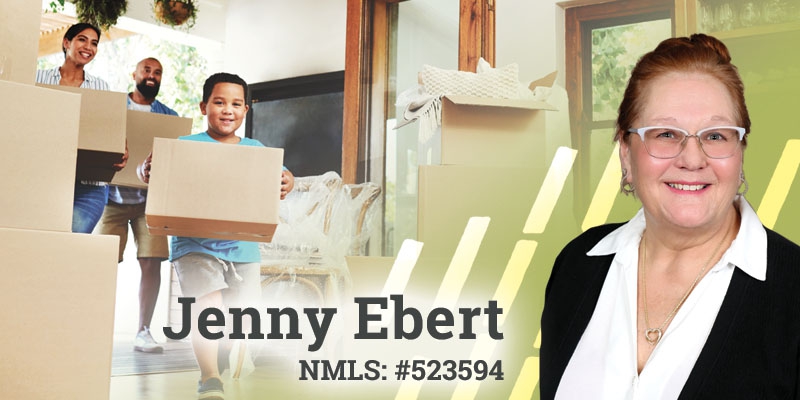Posted On: September 10, 2024 by Prevail Bank in: Home Loans

You found the perfect house, saved for a down payment, and applied for a mortgage. But what types of expenses (mortgage closing costs) can you expect?
To help you prepare, Jenny Ebert, NMLS# 523594, Mortgage Loan Originator in Eau Claire Wisconsin provides a list of the possible expenses (closing costs) you might incur when purchasing a home. Some closing costs are typically paid by the seller, some can be shared or negotiated as part of your offer, and other closing fees are required by your lender to obtain a loan.
Typical Closing Costs
Buyer:
- Origination Fee
- Document Preparation Fees
- Appraisal
- Appraisal Review Fee
- Credit Report
- Flood Zone Determination
- Tax Monitoring Fee
- Tax Transcript Fee
- Verification of Employment Fee
- Wire Fees
- Courier Fees
- Owner’s Policy of Title Insurance
- Lender’s Policy of Title Insurance
- Title Company Settlement Fee
- Attorney Fees
- Recording Fees
- Mortgage Insurance
- Homeowner’s Insurance
- Real Estate Commission
- Home Inspection
Seller:
In some cases these can be negotiated and/or are shared expenses with the buyer.
- Real Estate Commission
- Transfer Fee
- Owner’s Policy of Title Insurance
- Seller Paid Closing Costs
- Recording Fee
Explanation of Individual Fees
Origination Fee:
An origination fee is charged by the mortgage lender for making the loan. It covers the administrative services of the loan application.
Document Preparation Fees:
This fee covers the time and services involved in acquiring all the necessary documentation and information to complete the processing of your loan, in addition to bringing it to the closing table as an organized booklet of legal documents.
Appraisal:
An independent appraiser prepares a report that compares the property you are purchasing with similar properties that have recently sold. Your property’s appraised value should be at or near the agreed upon purchase price for a successful sale.
Appraisal Review Fee:
This is an analysis of the appraisal; it ensures the report is accurate and in compliance.
Credit Report:
This fee covers the cost of the credit report. It shows your payment history on loans and credit cards, credit utilization, residence history, and name variations.
Flood Zone Determination:
Every property, regardless of location, must be checked for flood zone status. A third party verification is needed before it is considered complete. If the property is located in a flood plain, flood insurance will be required.
Tax Monitoring Fee:
A tax monitoring service provides lenders with annual receipts when you pay your taxes in full, in addition to alerting them to any unpaid taxes that could become a tax lien.
Tax Transcript Fee:
Lenders may request a copy of your tax transcripts to make sure the income on your W-2 matches the government’s records. Tax transcripts are also used to confirm income for self-employed individuals.
Verification of Employment Fee:
In addition to using W-2s and current paycheck stubs for income calculations, lenders may verify income by contacting the employer to verify dates of employment and income figures. Many employers utilize data companies to provide this service and this cost is part of the process for qualifying for a loan.
Wire Fees:
If funds are wired (sent electronically) to complete the sale of a property or to refinance existing debt, expect a wire fee.
Courier Fees:
If any documents are mailed for an overnight delivery (IE: Federal Express or UPS), you can expect courier fees at closing.
Owner’s Policy of Title Insurance:
Federal law lists this as an optional service a buyer can purchase. In Wisconsin, this is typically paid for by the seller and is noted as such in the offer to purchase.
Lender’s Policy of Title Insurance:
A Lender’s Policy of Title Insurance is required to complete the loan process. If it is purchased on its own, it will cost more than if it was purchased with an Owner’s Policy (mentioned above). The difference in cost will be reflected as a credit from the seller at closing.
Title Insurance tells the lender and the buyer what outstanding loans, liens, and judgments are against the property; these loans, liens, and judgments will need to be taken care of before the sale can be completed. It will also detail any easements for either access or utilities that are part of the property. The Policy ultimately gives you ‘clear title’ to what you are purchasing.
Title Company Settlement Fee:
The title company makes sure that all issues with the title are cleared and that its recorded properly in the appropriate county. It also compiles and disperses the monies involved in the purchase transaction.
Attorney Fees:
If an attorney is required on the buyer’s end, then any fees incurred to draft documents are paid for by the buyer. The seller may incur attorney fees when/if a Warranty Deed is drafted.
Recording Fees:
In whichever county your purchased property resides, documents need to be recorded in that county’s court house, so your purchase is officially ‘of record’. This is the fee the County charges.
Mortgage Insurance:
If you make a down payment of less than 20%, your lender may require you to buy private mortgage insurance (PMI). This monthly expense is usually added to your monthly loan payment. The amount varies by lender.
Homeowner’s Insurance:
This insurance is picked out by you. It protects you and the house against losses due to fire, wind, and other covered hazards. The lender normally requires that a year be paid in advance of the closing (usually 3-10 days prior) with proof of coverage.
Real Estate Commissions:
Both the buyer and seller incur real estate commission fees for services provided. This is negotiated as part of the offer process.
Home Inspections:
An independently licensed home inspector can inspect your house for safety and soundness. Requesting an inspection is negotiated as part of the offer process. The inspector looks for specific issues and conditions related to roofs, foundations, electrical, plumbing, heating, and cooling systems. A home inspection is not required but considered a smart idea.
Seller Fees
Real Estate Commissions:
A seller will pay a listing commission to the listing agent. The fee for the buyer’s services is negotiated as part of the offer process and may, or may not, be included in the overall commission paid by the seller.
Transfer Fee:
The seller pays a transfer fee to the State of Wisconsin when the sale is recorded at the court house. Occasionally the seller may ask the buyer to pay this cost.
Owner’s Policy of Title Insurance:
The official offer to purchase in the State of Wisconsin says the seller is responsible for providing proof of clear title at closing in the form of an Owner’s Policy of Title Insurance. If an Owner’s Policy is purchased, it reduces the cost of the Lender’s Policy of Title Insurance.
Seller Paid Closing Costs:
As part of offer negotiations, a buyer can request that a seller pay all, or a portion, of the buyer’s closing costs. This is a negotiated item and must be addressed when the offer is being written. This request becomes less common in a highly competitive market, because it means more money out of the seller’s pocket at closing.
_ _ _ _ _ _ _ _ _ _ _ _ _
The closing costs owed when you purchase a home can be substantial. Specific costs vary depending on the type of property, whether you are using financing, and by the terms of your purchase agreement. Some of the closing costs are paid for by the seller and others can be negotiated. Bottom line, plan to pay an additional 2% to 4% of the property’s sales price as out-of-pocket closing costs, in addition to your down payment.
Your lender is required to provide you with an official Loan Estimate. The Loan Estimate is a shopping tool to help you compare fees from different lenders. When you have decided on a lender the Closing Disclosure lists the specific fees that you will pay at closing.
Meet the Lender
Jenny Ebert (NMLS# 523594)
*Serving our Eau Claire location.
 Jenny has been a mortgage lender in Eau Claire since 1990. Prior to that she sold real estate for 7 years in Eau Claire. She loves everything about the home buying and building process and she makes home ownership a dream come true for those she works with. Besides living and working in Eau Claire, Jenny volunteers her time with the Eau Claire Landmark Commission, Western Dairyland, and the Eau Claire County Housing Authority. Contact Jenny and let her assist you with your home purchase.
Jenny has been a mortgage lender in Eau Claire since 1990. Prior to that she sold real estate for 7 years in Eau Claire. She loves everything about the home buying and building process and she makes home ownership a dream come true for those she works with. Besides living and working in Eau Claire, Jenny volunteers her time with the Eau Claire Landmark Commission, Western Dairyland, and the Eau Claire County Housing Authority. Contact Jenny and let her assist you with your home purchase.




